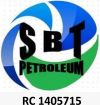About the Course
Understanding the principles of fluid flow through the production system is important in estimating the performance of individual wells and optimizing well and reservoir productivity. In the most general sense, the production system is the system that transports reservoir fluids from the subsurface reservoir to the surface, processes and treats the fluids, and prepares the fluids for storage and transfer to a purchaser. The reservoir is the source of fluids for the production system. It is the porous, permeable media in which the reservoir fluids are stored and through which the fluids will flow to the wellbore. It also furnishes the primary energy for the production system. The wellbore serves as the conduit for access to the reservoir from the surface. It is composed of the drilled wellbore, which normally has been cemented and cased. The cased wellbore houses the tubing and associated subsurface production equipment, such as packers. The tubing serves as the primary conduit for fluid flow from the reservoir to the surface, although fluids also may be transported through the tubing-casing annulus.
Nodal analysis is the total producing system as a group of components potentially encompassing reservoir rock/irregularities, completions (gravel pack, open/closed perforations, open hole), vertical flow strings, restrictions, multi-lateral branches, horizontal/hilly terrain flow lines/risers, integrated gathering networks, compressors, pump stations, metering locations, and market/system rate/pressure constraints. An improper design of any one component, or a mismatch of components, adversely affects the performance of the entire system. The chief function of a system-wide analysis is to increase well rates. It identifies bottlenecks and serves as a framework for the design of efficient field wide flow systems, including wells, artificial lift, gathering lines and manifolds. Together with reservoir simulation and analytical tools, nodal analysis is used in planning new field development. Software is used extensively during the class and the participant is encouraged to bring their own laptop.
Course Objectives
The participants will made to understand the practical flow of production system analysis with nodal analysis
Course Content
- Introduction/Course Objectives
- Components of the Producing System; Integrated Production Modelling; Basic Fluid Flow Concepts: Fluid flow in Porous media, Darcy Law; Phase Behaviour of Reservoir Fluids
- Flow from Reservoir to the Wellbore
- Oil and Gas Well Flow Equations; Productivity Index; Factors Affecting PI; What is IPR; Factors Affecting IPR; Effects of Drive Mechanisms on IPR
- Predicting Present time and Future IPR for Vertical and Horizontal Oil Wells;
- Straight Line IPR; Vogel; Vogel Modified with Standing; Darcy IPR; Jones et al; Future IPR: Fetkovich; Fetkovich-Vogel; Klins and Clark Method
- Predicting Present time and Future IPR for Gas Wells
- Fluid Flow in Pipes and Restrictions, Vertical and Horizontal fluid flow regimes; PI; Holdup; Slippage; Erosional Velocity
- Well flow Correlations; Oil pipeline flow correlations; Effects of variables on pipeline performance; Pressure drop through restrictions Critical Flow correlations
- Complete System Analysis; Reservoir aspect of production and well completion; IPR; VLP; Well Design; Well Modelling – Predicting well performance; Selecting best IPR/VLP correlations
- Using Software Application for Nodal Analysis (PERFORM and PROSPER)
- Introduction to Well Test Interpretation, Oil well testing; Gas Well Testing; Skin Analysis, Artificial Lift, Gas Lift Analysis, Coning in Vertical and Horizontal Wells, Class Test; Revision; Questions etc
Who should attend?
Production, operations, and reservoir engineers; senior technicians and field supervisors with an engineering background
5 Days
Course Fees (VAT Included)
Lagos/PH/Abuja: ₦ 376,250.00
UK/US/Ghana/Others: $ 3,762.50
- Award of Certificate.
- Professional Training Materials
REGISTRATION PROCEDURE
- Go to “Register Now” button and fill the form and send it. You will get “message sent” if it is successful.
- You will get confirmation of your registration within two working days when you will be asked to go ahead and make payment.
- Go ahead and make payment.
- Send your name, phone number, email address, training location, amount paid to info@sbtpetroleum.com.ng OR SMS to +2349098171437.
- Upon confirmation of your payment, an electronic receipt will be sent to your mail.
- A joining instruction will be sent to you at least 72 hours before the training date an time.
- Looking forward to training date to commence your training. However, if a need to change the dates of the training arises, you will be notified immediately. This may be due to unavailability of the instructors or due to unavoidable logistic challenges.
ACCOUNT DETAILS
NAIRA ACCOUNT
BANK: ECOBANK
ACCOUNT NAME: SBT PETROLEUM GEOSCIENCE LIMITED
ACCOUNT NUMBER: 1613062169
BRANCH: Chevron Branch
SORT CODE: 050150340
DOLLAR ACCOUNT
BANK: ECOBANK
ACCOUNT NAME: SBT PETROLEUM GEOSCIENCE LIMITED
ACCOUNT NUMBER: 1613062183
BRANCH: Chevron Branch
SORT CODE: 050150340
